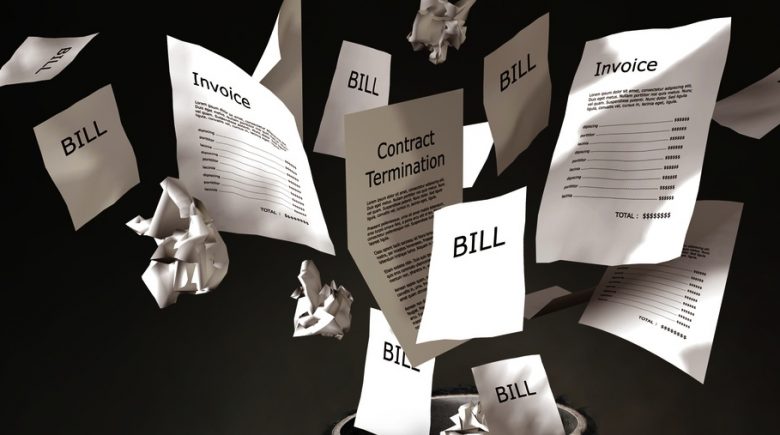Dear Ms.Tique,
I hate clutter, especially paper clutter. How do I minimize my financial clutter without throwing out something essential?
Sincerely,
Clutter Hound
Dear Hound,
As a fellow clutter hater, I am constantly looking for ways to minimize paper build-up in my house. Between credit card offers, bank statements and Bed Bath and Beyond 20 percent off coupons, my pile of papers quickly morphs into a feng shui nightmare unless it is regularly organized. Here are a few tips on fighting financial clutter:
- You may be called upon to back-up your tax returns or prove a payment. The consensus on saving tax forms, including all supporting documents and receipts, is seven years. Be sure to also save receipts and statements of large purchases, such as your house or other investments, for seven years after you sell. You may need these to show a financial gain or loss.
- Request paperless billing and e-statements. Automatic payments are my preferred option, as long as you actually OPEN your bills to ensure the charges are correct.
- Depending on your financial institution, recent bank and brokerage statements are stored for free online. If you need access to an older statement, like I did last year during a small dispute with my cable company, they are typically retrievable through your bank for a fee. In my case, the fee was $5 and well worth it considering my personal distaste for collecting documents. If paying the fee is especially unsavory see below.
- Scan, file, secure and back-it-up(x2). If you are comfortable storing your tax returns and other important annual documents electronically, go for it! I would recommend storing these documents in at least two secure locations because the IRS won’t be very understanding if your hard drive dies suddenly. Since technology is constantly changing, make sure your files are always kept on current technology. Who knows how long your USB jump drive will even be viable? I personally file important forms both electronically and as hard copies in a locked fire safe box. This extra step helps me feel prepared and sleep sound at night.
Dear Ms.Tique,
I hate clutter, especially paper clutter. How do I minimize my financial clutter without throwing out something essential?
Sincerely,
Clutter Hound
Dear Hound,
As a fellow clutter hater, I am constantly looking for ways to minimize paper build-up in my house. Between credit card offers, bank statements and Bed Bath and Beyond 20 percent off coupons, my pile of papers quickly morphs into a feng shui nightmare unless it is regularly organized. Here are a few tips on fighting financial clutter:
- You may be called upon to back-up your tax returns or prove a payment. The consensus on saving tax forms, including all supporting documents and receipts, is seven years. Be sure to also save receipts and statements of large purchases, such as your house or other investments, for seven years after you sell. You may need these to show a financial gain or loss.
- Request paperless billing and e-statements. Automatic payments are my preferred option, as long as you actually OPEN your bills to ensure the charges are correct.
- Depending on your financial institution, recent bank and brokerage statements are stored for free online. If you need access to an older statement, like I did last year during a small dispute with my cable company, they are typically retrievable through your bank for a fee. In my case, the fee was $5 and well worth it considering my personal distaste for collecting documents. If paying the fee is especially unsavory see below.
- Scan, file, secure and back-it-up(x2). If you are comfortable storing your tax returns and other important annual documents electronically, go for it! I would recommend storing these documents in at least two secure locations because the IRS won’t be very understanding if your hard drive dies suddenly. Since technology is constantly changing, make sure your files are always kept on current technology. Who knows how long your USB jump drive will even be viable? I personally file important forms both electronically and as hard copies in a locked fire safe box. This extra step helps me feel prepared and sleep sound at night.



